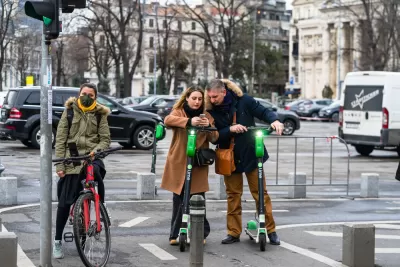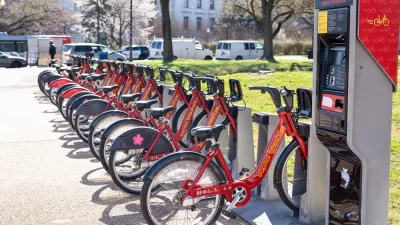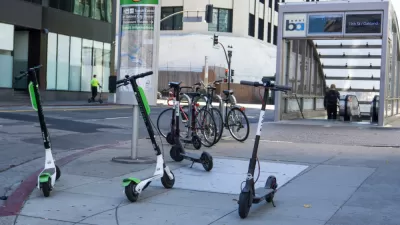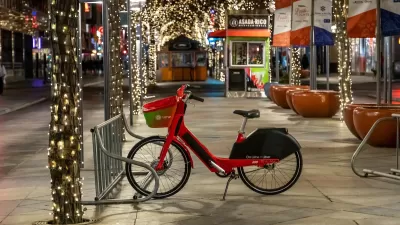Two new studies show that the adoption of shared micromobility can reduce transportation-related emissions and congestion by substantial margins.

New research shows that micromobility can reduce transportation emissions by wider margins than previously thought. Kea Wilson outlines the results of two new studies in an article for Streetsblog USA.
“The first study, conducted by academics at the Georgia Institute of Technology, found that travel times in Atlanta swelled an estimated 9 to 11 percent as a result of the city’s controversial 2019 decision to ban the modes after dark after drivers killed four riders.” During sporting events, that number shot up to 37 percent. A second report from Germany reveals that greenhouse gas emissions decreased as a result of shared micromobility adoption in six global cities. “That’s even accounting for the fact that some of those riders said they wouldn’t have made those trips at all if Lime wasn’t available — as well as the fact that others admitted to trading a comparatively greener walking, transit, or non-electric bike journey for a ride on an electric-assist mode.”
Taken together, Lime says the two studies are proof positive that cities are underestimating how critical micromobility is to their residents — and their collective climate future.
Wilson includes two caveats: the Atlanta study only had a few sporting events during the study period, and the German study was funded by Lime, a shared micromobility operator with an obvious stake in proving the benefits of the mode. Using data from just one operator also means that these studies do not necessarily reflect industry-wide trends.
Nevertheless, not all benefits of shared mobility are easily quantifiable. Wilson provides one such example: “Because even if a scooter trip does replace a walking trip, that doesn’t meant that it didn’t make someone feel safer getting home from a bus stop at night — and in the long run, give her a clean alternative to the park-and-ride.”
FULL STORY: Research: Scooters Cut Car Travel and Emissions More Than Previously Thought

Alabama: Trump Terminates Settlements for Black Communities Harmed By Raw Sewage
Trump deemed the landmark civil rights agreement “illegal DEI and environmental justice policy.”

Planetizen Federal Action Tracker
A weekly monitor of how Trump’s orders and actions are impacting planners and planning in America.

The 120 Year Old Tiny Home Villages That Sheltered San Francisco’s Earthquake Refugees
More than a century ago, San Francisco mobilized to house thousands of residents displaced by the 1906 earthquake. Could their strategy offer a model for the present?

Ken Jennings Launches Transit Web Series
The Jeopardy champ wants you to ride public transit.

BLM To Rescind Public Lands Rule
The change will downgrade conservation, once again putting federal land at risk for mining and other extractive uses.

Indy Neighborhood Group Builds Temporary Multi-Use Path
Community members, aided in part by funding from the city, repurposed a vehicle lane to create a protected bike and pedestrian path for the summer season.
Urban Design for Planners 1: Software Tools
This six-course series explores essential urban design concepts using open source software and equips planners with the tools they need to participate fully in the urban design process.
Planning for Universal Design
Learn the tools for implementing Universal Design in planning regulations.
Clanton & Associates, Inc.
Jessamine County Fiscal Court
Institute for Housing and Urban Development Studies (IHS)
City of Grandview
Harvard GSD Executive Education
Toledo-Lucas County Plan Commissions
Salt Lake City
NYU Wagner Graduate School of Public Service





























